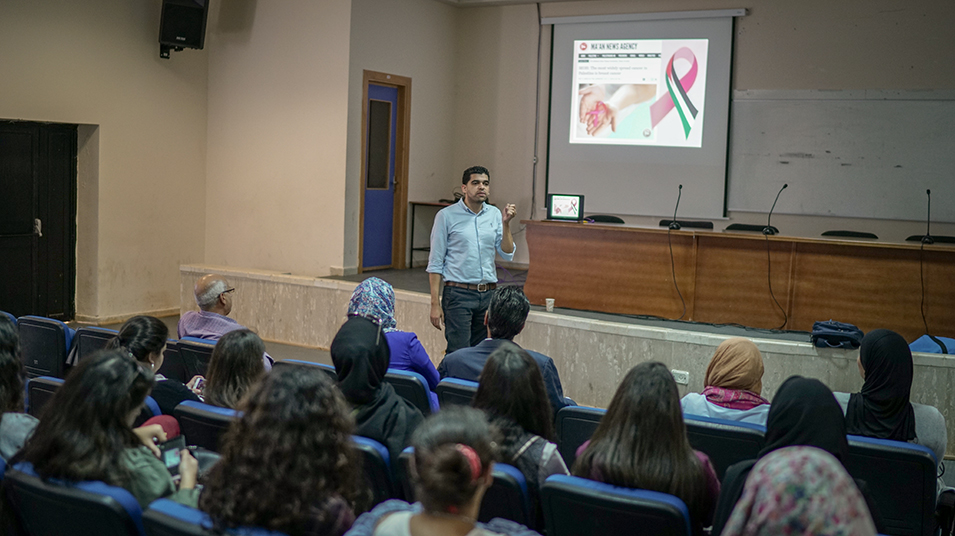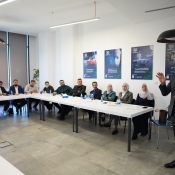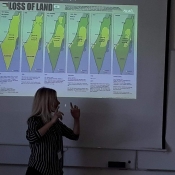Professor raises awareness on breast cancer identification, treatment in public lecture
In honor of the Breast Cancer Awareness Month, the Deanship of Student Affairs at Birzeit University, together with the Faculty of Faculty of Pharmacy, Nursing and Health Professions, organized a lecture on the early detection of breast cancer, on Tuesday, October 16, 2018.
Led by Assef Jawaada, a general surgery and laparoscopy specialist and a part-time lecturer at Birzeit University, the lecture delved into the history, causes, warning signs, risk factors, and early detection methods of breast cancer.
Jawaada began the lecture by noting the invasive nature of breast cancer, saying that it occurs in one out of every eight women worldwide. In 2018 alone, he noted, breast cancer was detected in 2.1 million women.
“Breast cancer is the second leading cause of cancer deaths in women worldwide,” Jawaada said. “In 2014, 627,000 women died from breast cancer. It is the most widely spread form of cancer in Palestine, amounting to 15.3 of all cancer cases.”
Jawaada also discussed the risk factors associated with breast cancer, such as advancing age; a family history of cancer diagnosis; exposure to radiation; breast density - lumps are more difficult to detect in denser breasts; ethnicity; and frequency of periods - a higher number of periods means a higher risk of cancer.
“Just because you don’t exhibit these factors does not mean you shouldn’t do regular check-ups,” observed Jawaada. “These factors are visible in only 30-40 percent of cancer cases. The other cancer positive cases do not exhibit any of these factors.”
The laparoscopy specialist then introduced the attending students and faculty members to the warning signs associated with breast cancer; signs that no person should ignore, such as: lumps in the breast or in the armpits, bloody discharges from the nipples, changes in the shape or size of the breast or the nipple, or changes in the skin color or texture. If any of those signs are found, Jawaada said, then the person must immediately visit a specialist and undergo further tests.
Finally, Jawaada reviewed breast cancer screening methods, such as breast self-examination, clinical examination, and mammography. The lecturer went over the methods one-by-one and described in detail and with props how self-examination should be conducted and what signs the person should look for.
Jawaada commented that mammography is the most trusted of the three examination methods, with a detection rate of 84 percent. In Palestine, he added, out of 1072 cancer deaths, 643 could have been prevented by early detection, almost 60 percent. There are 19 mammography units in the West Bank and 20 units in Gaza, with screening free of charge for women aged 40 and up.
“While breast cancer is common and deadly, it is curable with early detection, diagnosis, and treatment,” Jawaada remarked as he wrapped-up the lecture and fielded questions from the attendees.







